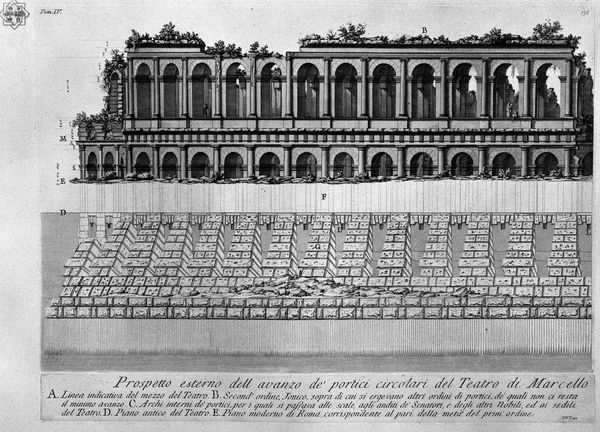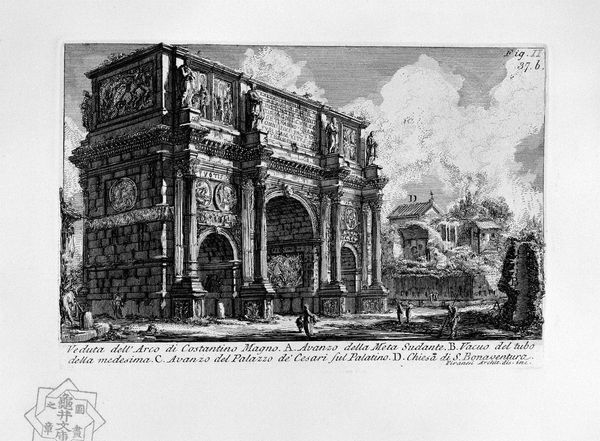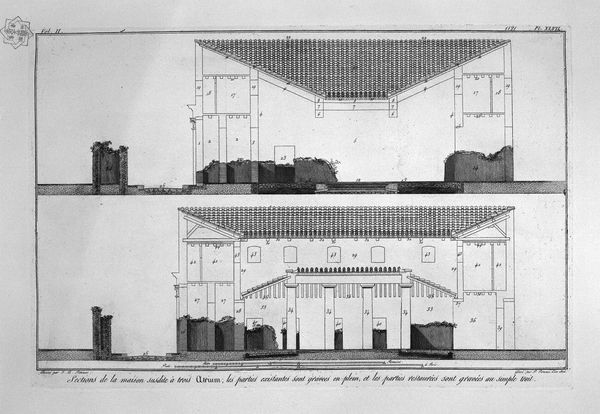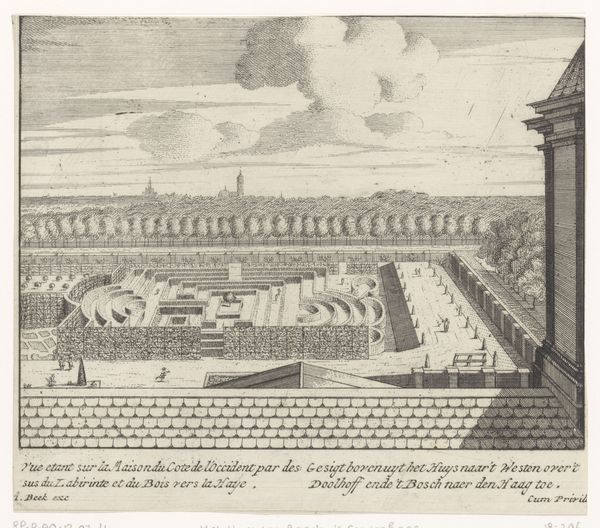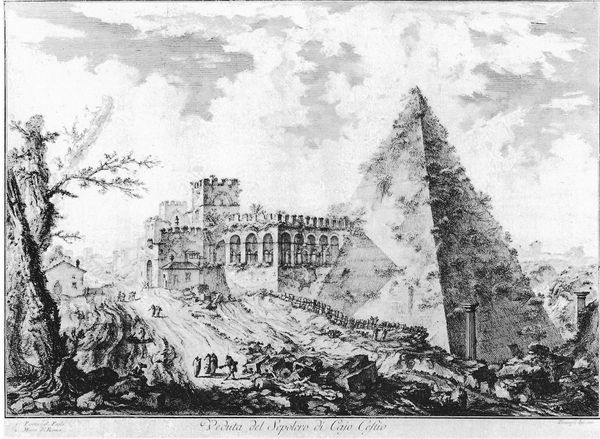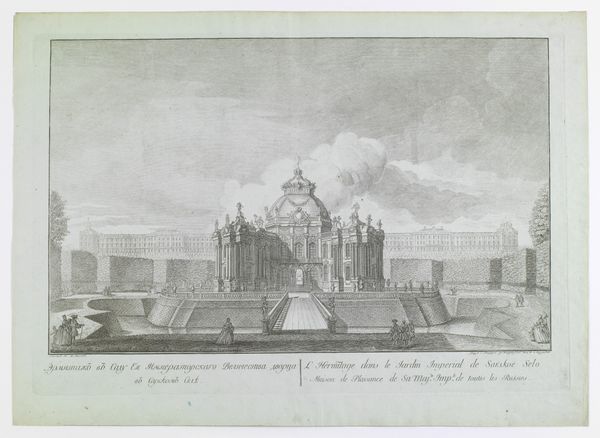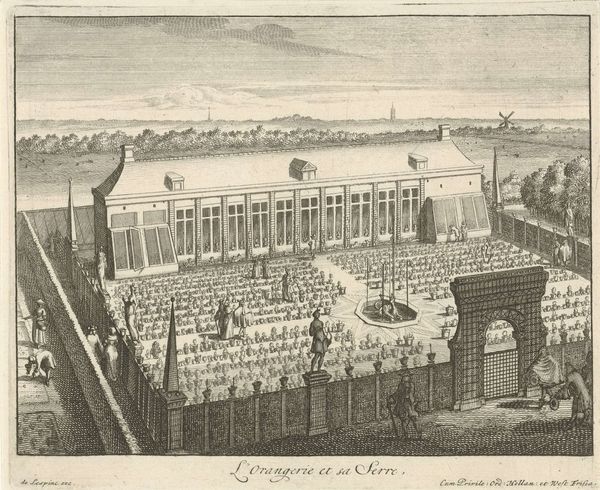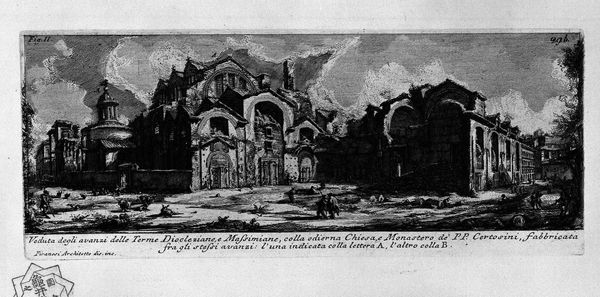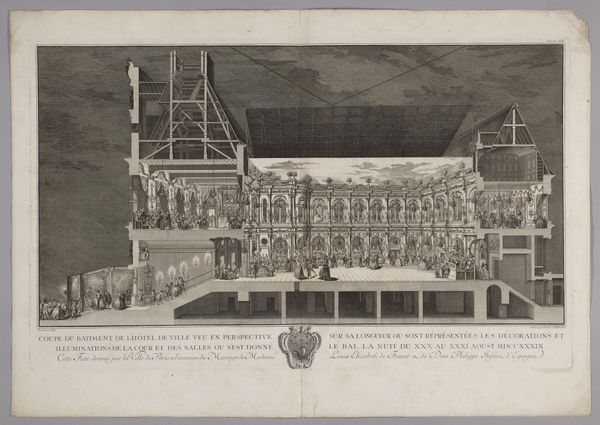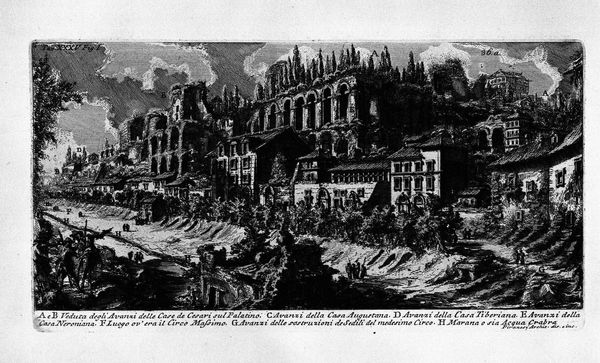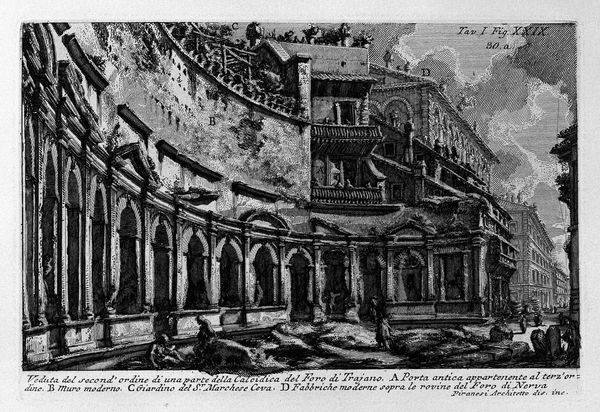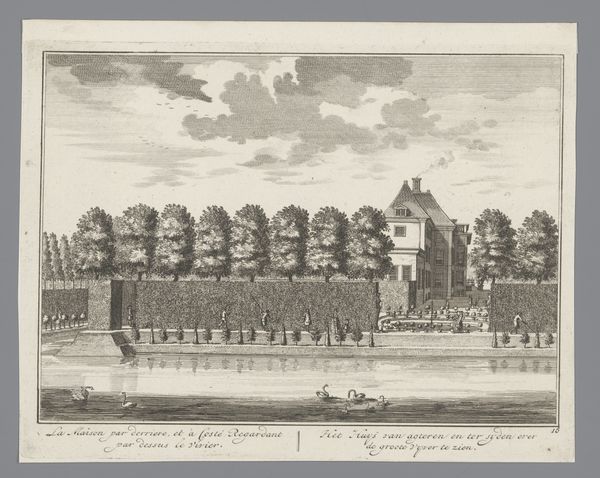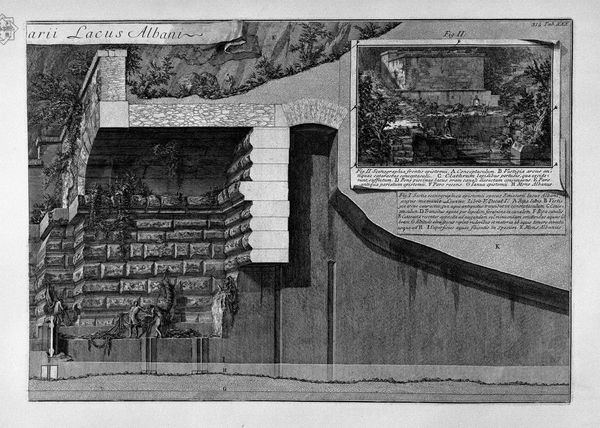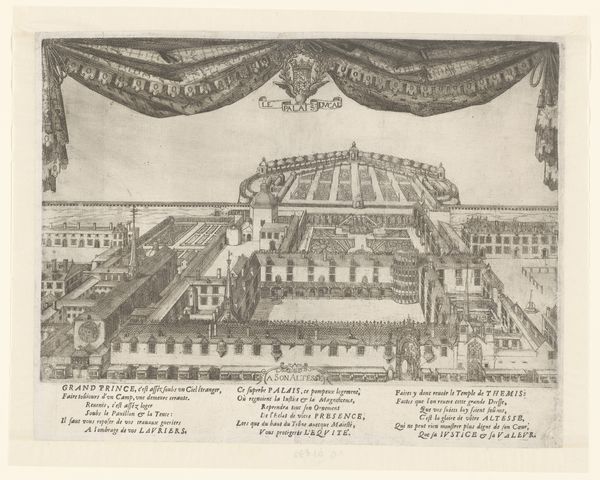
The Roman antiquities, t. 4, Plate XXVII. One of the fragments of the ancient map of Rome showing the layout of the stage of the Theatre of Marcellus.
0:00
0:00
print, etching, engraving, architecture
# print
#
etching
#
greek-and-roman-art
#
landscape
#
ancient-mediterranean
#
column
#
engraving
#
architecture
Copyright: Public domain
This is an etching by Giovanni Battista Piranesi, who lived in 18th-century Italy, from his series on Roman antiquities. It shows the stage layout of the Theatre of Marcellus. Piranesi was fascinated by the grandeur of ancient Rome, but also by its decay. Here, the image juxtaposes a detailed, almost clinical, depiction of the theatre’s foundations with a romanticized vision of its ruined state. Italy at this time was a popular destination for wealthy Europeans on the Grand Tour, and Piranesi’s prints catered to their interest in the classical world. However, they also served as a commentary on the state of contemporary Rome, inviting viewers to reflect on the rise and fall of civilizations, and perhaps on the cultural and political landscape of their own time. Historians use such images, alongside texts and archaeological evidence, to reconstruct the past and understand how different eras have interpreted their classical heritage. The image offers insight into the 18th century, revealing the beginnings of modern archaeology as well as a nostalgic yearning for the past.
Comments
No comments
Be the first to comment and join the conversation on the ultimate creative platform.
